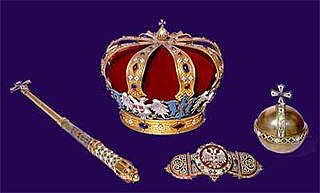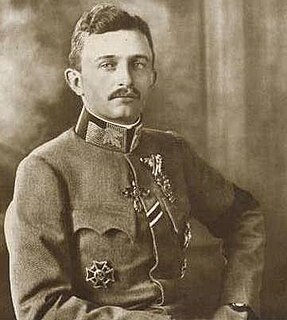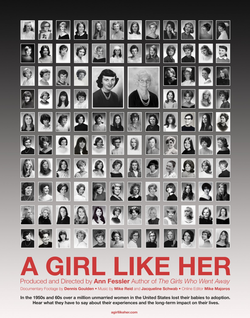
Darwinism is a theory of biological evolution developed by the English naturalist Charles Darwin (1809–1882) and others, stating that all species of organisms arise and develop through the natural selection of small, inherited variations that increase the individual's ability to compete, survive, and reproduce. Also called Darwinian theory, it originally included the broad concepts of transmutation of species or of evolution which gained general scientific acceptance after Darwin published On the Origin of Species in 1859, including concepts which predated Darwin's theories. It subsequently referred to the specific concepts of natural selection, the Weismann barrier, or the central dogma of molecular biology. Though the term usually refers strictly to biological evolution, creationists have appropriated it to refer to the origin of life, and it has even been applied to concepts of cosmic evolution, both of which have no connection to Darwin's work. It is therefore considered the belief and acceptance of Darwin's and of his predecessors' work—in place of other theories, including divine design and extraterrestrial origins.
A major appliance, or domestic appliance, is a large machine in home appliance used for routine housekeeping tasks such as cooking, washing laundry, or food preservation. An appliance is different from a plumbing fixture because it uses electricity or fuel.

A portable stove is a cooking stove specially designed to be portable and lightweight, used in camping, picnicking, backpacking, or other use in remote locations where an easily transportable means of cooking or heating is needed. Portable stoves can be used in diverse situations, such as for outdoor food service and catering and in field hospitals.

Imperial Brands plc, formerly Imperial Tobacco Group plc, is a British multinational tobacco company headquartered in Bristol, United Kingdom. It is the world’s fourth-largest international cigarette company measured by market share after Philip Morris International, British American Tobacco, and Japan Tobacco, and the world's largest producer of cigars, fine-cut tobacco, and tobacco papers.

Ignaz Aurelius Fessler, aka Feßler was a Hungarian ecclesiastic, politician, historian and freemason.
Patristics or patrology is the study of the early Christian writers who are designated Church Fathers. The names derive from the combined forms of Latin pater and Greek patḗr (father). The period is generally considered to run from the end of New Testament times or end of the Apostolic Age to either AD 451 or to the Second Council of Nicaea in 787.

Serbia, like most former monarchies of Europe, has had crowns once worn by its rulers. The various Serbian principalities and kingdoms were organised around a number of different royal dynasties. Many of these invested in symbols of royalty which has led to a number of distinctive crowns, jewels and other treasures of incredible wealth surviving to the present day. As far as is known, there are four royal crowns once worn by Serbian kings or princes that have survived to the present day, of which just one is kept in the modern Republic of Serbia today.

A biomass cook stove is heated by burning wood, charcoal, animal dung or crop residue. Cook stoves are commonly used for cooking and heating food in rural households. Nearly half of the world's population, approximately 3 billion people, use solid fuels such as coal, wood, animal dung, and crop residues for their domestic energy needs. Among those who use indoor cooking stoves, the poorest families living in rural areas most frequently use solid fuels, where it continues to be relied on by up to 90% of households. Households in developing countries consume significantly less energy than those in developed countries; however, over 50% of the energy is for cooking food. The average rural family spends 20% or more of its income purchasing wood or charcoal for cooking. The urban poor also frequently spend a significant portion of their income on the purchase of wood or charcoal. Deforestation and erosion often result from harvesting wood for cooking fuel. The main goal of most improved cooking stoves is to reduce the pressure placed on local forests by reducing the amount of wood the stoves consume, and to reduce the negative health impacts associated with exposure to toxic smoke from traditional stoves.

Russell Stover Candies, Inc., founded by Russell and Clara Stover in 1923, is an American supplier of candy, chocolate, and confections. The corporate headquarters are in Kansas City, Missouri.
Leon Eugene Stover was an anthropologist, a Sinologist, and a science fiction fan, who wrote both fiction and nonfiction. He was a scholar of the works of H. G. Wells and Robert A. Heinlein and a frequent collaborator with Harry Harrison.
Sister Mary Thomasita Fessler was an American painter and religious sister. Her work consisted of paintings, sculptures and designs for stained-glass windows.

Josef Fessler (1813–1872) was Roman Catholic Bishop of Sankt Pölten in Austria, a secretary of the First Vatican Council and an authority on patristics.
Daniel Fessler is a professor of biological anthropology at the University of California, Los Angeles, working in the fields of evolutionary psychology, evolutionary anthropology, and evolutionary medicine. He was an editor-in-chief of journal of Evolution and Human Behavior.

The 1940 El Centro earthquake occurred at 21:35 Pacific Standard Time on May 18 in the Imperial Valley in southeastern Southern California near the international border of the United States and Mexico. It had a moment magnitude of 6.9 and a maximum perceived intensity of X (Extreme) on the Mercalli intensity scale. It was the first major earthquake to be recorded by a strong-motion seismograph located next to a fault rupture. The earthquake was characterized as a typical moderate-sized destructive event with a complex energy release signature. It was the strongest recorded earthquake to hit the Imperial Valley, and caused widespread damage to irrigation systems and led to the deaths of nine people.

A legislative election to elect the members of the 11th Imperial Council were held in Cisleithania, the northern and western ("Austrian") crown lands of Austria-Hungary, on 14 and 23 May 1907. They were the first elections held under universal male suffrage, after an electoral reform abolishing tax paying requirements for voters had been adopted by the Council and was endorsed by Emperor Franz Joseph earlier in the year. However, seat allocations were based on tax revenues from the States.

The Imperial-Royal Mountain Troops were founded in 1906 as part of the Austrian Landwehr, the territorial army of the Cisleithanian half of the Austro-Hungarian Empire. As a result, the abbreviation "k.k." was used and not "k.u.k." which would have implied a connexion with the Hungarian half of the Empire.

A Girl Like Her is a feature length American documentary film by Ann Fessler about women who lost children to adoption in the United States between the end of World War II and the early 1970s due to the social pressures of the time, in a period now known as the Baby Scoop Era. Fessler combines the voices of the women with footage from educational films and newsreels about dating, sex, “illegitimate” pregnancy and adoption. The women’s stories unfold over footage of life in post-World War II America. Educational films offer guidance about dating and sex, and scripted newsreels shed light on adoption in an era when secrecy prevailed and adoptable babies were thought to be “unwanted” by their mothers. As the footage illuminates the past, the women’s stories form a collective narrative as they recount their experiences of dating, pregnancy, family reaction, banishment, and the long-term impact of surrender and silence on their lives.
Ann Fessler is an author, filmmaker, video-installation artist, and a professor emerita at the Rhode Island School of Design. Her work reconciles the division between lived history and recorded history from a feminist perspective. She is especially known for her work dealing with adoption before legalized abortion and the experiences of women who surrendered children in the 1950s and 60s; particularly women who were seen as unfit mothers due to being a single parent.

Sommerhuber is a traditional ceramics producer from Steyr city, Austria founded in 1491. It produces tiles for tiled stoves and tile chimneys and the heat ceramics for the spas. The company was a Imperial and Royal Warrant of Appointment.















